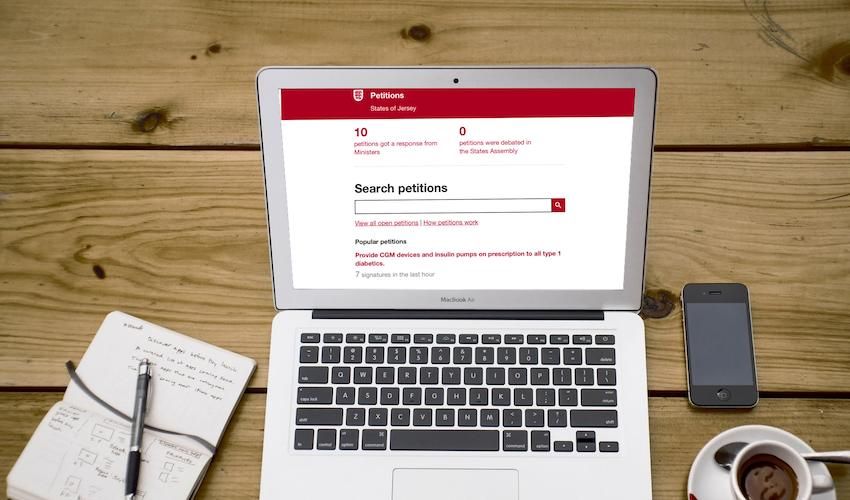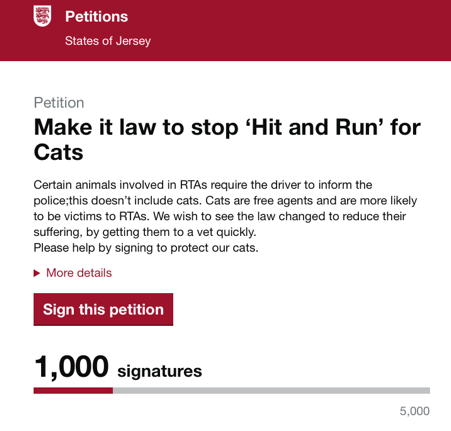

The validity of online petitions has been thrown into question after it was revealed that there is currently no way for States officials to know whether fake email addresses are being used to increase signature numbers.
It's a problem which has long plagued traditional, hard copy petitions too - but does digital technology not offer a better solution?
More than 1,000 islanders digitally threw their weight behind the idea of a compensation scheme for sufferers of asbestos-related diseases shortly before the Minister in charge brought proposals for such a scheme, while hundreds backed an e-petition calling for medicinal cannabis in the weeks before a decisive States vote on the matter.
But now Express has learnt that States officials are not – and can’t be – sure as to how many of those signatures were ‘real’.

Pictured: An example of a popular petition, which gained enough signatures for a ministerial response earlier on, and is now more than halfway towards a States debate on the issue, with more than 2,700 at the time of writing.
A spokesperson told Express that some IP addresses were linked with up to five signatures - while this could relate to members of the same household or workplace, it could also mean that one person could have signed up to five times.
The spokesperson admitted that “verification has its limits.”
"95%+ of the email addresses (used to sign petitions) are from services like Google, Microsoft, Apple, Gmail, Outlook.com, Hotmail, Yahoo, and iCloud. These services check that an account is being set up by a real person,” they explained.

Pictured: A States spokesperson admitted it was difficult to tell which email addresses are real.
"If someone signs up manually to Google Mail multiple times, and uses each email address to sign the petition from an IP address in Jersey, there's no way of knowing that they're the same person. This is the same for the UK petitions website. However, if someone uses a disposable email service, their ability to sign would be limited."
Nonetheless, they stated that any individuals they found to have abused the service would be blocked and their signatures marked as fraudulent.
The only way to verify that an individual only signs a petition once would be to use a secure digital ID, which is still yet to be fully established in Jersey amid largely unexplained setbacks to the ‘eGov’ scheme to get more government services online, which has gone over budget and cost taxpayers over £11million.
However, the States say that even when that service becomes available, they might not make it mandatory so as to avoid creating "a barrier to people signing petitions.”
E-petitions were launched in August on the States website to allow islanders to petition the government directly. Previously, campaigners had to get those backing their cause to sign a paper petition and then get a States member to present it to the assembly. The e-petition means that they now have to get over 1,000 islanders to sign their petition within six months to receive an answer from the relevant Minister, or over 5,000 for the issue to be debated in the States Assembly.
There are currently 52 petitions and only two of them have over 2,000 signatures. The one aiming to stop 'Hit and Run' for cats currently has 2,745 signatures, while one seeking a cap on rental prices has reached 3,420. Launched more recently, a petition to only allow fireworks to be sold for licensed displays has reached 1,432 signatures and is awaiting a ministerial response.
Comments
Comments on this story express the views of the commentator only, not Bailiwick Publishing. We are unable to guarantee the accuracy of any of those comments.